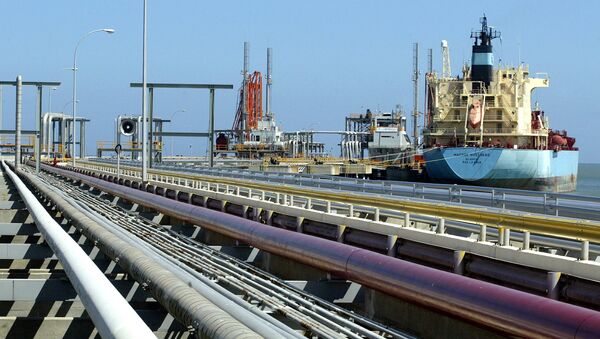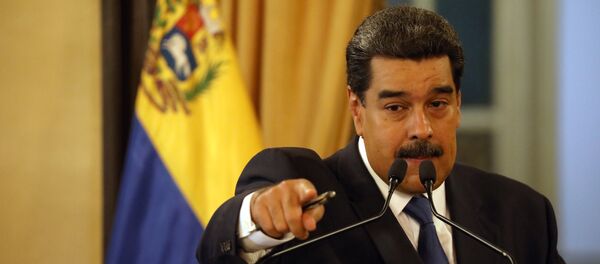"Not yet, from what we know. But of course, we have little information since we no longer have contact from our staff. I don’t think there will be a shutdown of production, what we see is a continuous decrease," Breuillac told reporters on the sidelines of the International Petroleum Week conference in London when asked if he expected the Venezuelan oil production to completely shut down due to the crisis.
Earlier in the month, the French oil giant Total announced the evacuation of its staff from Venezuela, where its accounts have been frozen due to US sanctions. However, Total plans to overcome the sanctions by leading operations not from the United States, but from Europe.
"We have really withdrawn all our experts in Venezuela, it was a week ago due to the security situation in Venezuela. We have seen a continuous reduction of the production of two fields in which we are involved… That is due to the fact that production in Venezuela is becoming more and more difficult, people are really struggling to come to work because they have to source essential food for families, it is very difficult for our staff," he said.
Apart from the punitive measures on Venezuelan officials, including President Nicolas Maduro's wife, in January Washington announced they were imposing sanctions against the country's state-owned oil company PDVSA, adding that it will block $7 billion in PDVSA's assets. They also banned the deals with the entity as part of an effort to facilitate a power transfer in Caracas. US Treasury Secretary Steven Mnuchin claimed to reporters that by blocking PDVSA assets the US was taking care of the company "in the interests of the Venezuelan people".
Speaking about the American sanctions, Venezuelan Foreign Minister Jorge Arreaza has recently called them to be one the main reason behind the political and financial crisis in the country.
READ MORE: Caracas Accuses US of Economic Blockade, Warfare Against Venezuela
Venezuelan President Nicolas Maduro, who was sworn in for his second presidential term on January 10 after winning the May election, which part of the opposition boycotted, qualified Guaido's move as an attempt to stage a coup orchestrated by Washington.
The United States immediately recognized Guaido, after which some 50 other countries followed suit. Russia, China, Cuba, Bolivia and a number of other states have, in the meantime, voiced their support for the legitimate government of Maduro. Mexico and Uruguay have refused to recognize Guaido, declaring themselves neutral and promoting crisis settlement via dialogue.




